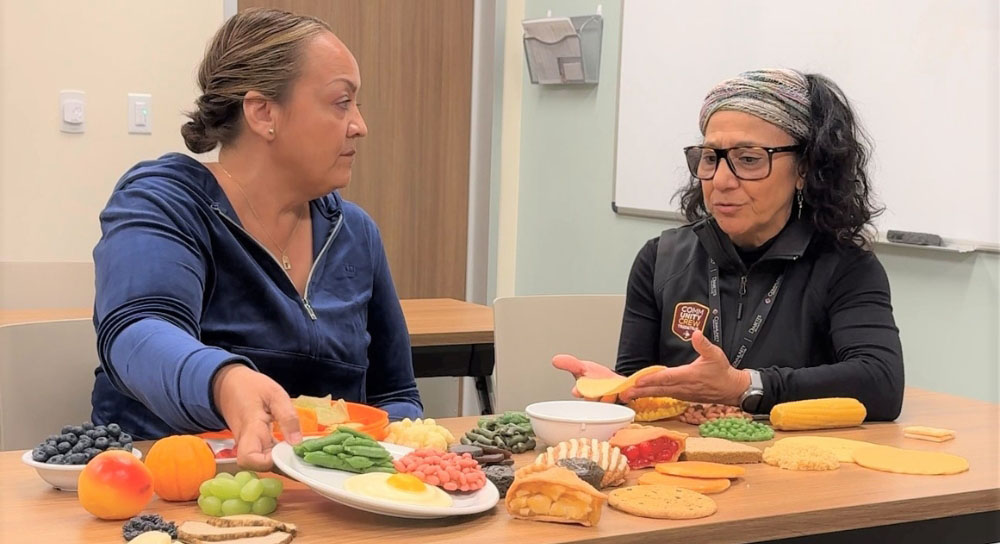A group of physicians has partnered with Community Health System to create a better support system for pregnant women who struggle with substance use disorder.
Substance use disorder (SUD) is a mental health disorder in which the continued use of drugs and alcohol becomes problematic, disrupting everyday life. It can eventually lead to addiction.
“Substance use disorder in pregnancy is a serious problem among the pregnant patient population,” said Dr. Subhashini Ladella, medical director of Maternal Fetal Medicine at both Community Regional and Clovis Community medical centers. “Substance use in pregnancy has increased significantly in recent years, paralleling the epidemic observed in the general population … increasing risk for mothers and babies.”
Recent research from the National Institute on Drug Abuse shows that smoking tobacco or marijuana, taking prescription pain relievers, or using illegal drugs during pregnancy is associated with double — or even triple — the risk of stillbirth.
Dr. Ladella, together with Drs. Robin Linscheid and Muhammad Shoaib Khan, created a task force about a year ago to help address this problem. Their goal is to educate other providers on how to provide care in a welcoming and supportive environment and ultimately encourage patients to seek treatment.
“The first thing about getting moms into treatment of any kind is educating them that they can be saved, they can be treated, they can feel better about what they’re suffering from,” said Dr. Khan. “And the first step is not to stigmatize them about their disease.”
Reducing the stigma of substance use disorder
Dr. Linscheid has seen firsthand how women struggling with substance use can be stigmatized.
“A methadone clinic in town had to create a different route of check-in for their pregnant patients because these women were being shamed in the waiting room by other patients who were seeking the same treatment,” she said. “So even within that community, there was an astonishing lack of discernment for these women when they were trying to get the treatment they needed for themselves and their baby.”
Because of incidents like these, pregnant women with SUD often won’t seek the prenatal care they need out of fear they may be shamed, prosecuted or have their babies taken away from them. This presents serious health risks for both them and their babies.
“Substance use does not discriminate and can be found across all racial and ethnic groups, all socioeconomic groups, and in rural, urban and suburban communities,” Dr. Ladella said.
“Substance use in pregnancy has become a significant public health crisis,” she warned. “As healthcare professionals, we are trying to reduce the stigma when it comes to our interactions with these patients and be a safe place for women who want help.”
The doctors believe every pregnant woman deserves to experience dignity throughout her pregnancy. Their aim is to see these women being given every opportunity for greater access to treatment.
Helping moms-to-be by reducing barriers to care
Patients battling substance use disorder often experience trauma as a result of their condition, including blaming or shame from family members, the community and even some healthcare providers — making them even more reluctant to seek care.
“Part of that process to reduce barriers is educating more clinicians who provide obstetrical care on treatment of substance use disorder,” said Dr. Linscheid, who is board certified in family medicine and a UCSF Fresno faculty member at Community.
“We have initiated projects that will hopefully make a larger change for our patients,” said Dr. Khan, who is board certified in both family medicine and addiction medicine, and a member of UCSF Fresno Family Medicine faculty at Community.
Dr. Khan is an addiction specialist and leads clinical and educational projects for addiction care at UCSF Fresno. He is also training other UCSF providers in different specialties to become champions and educate their own residents in substance use disorder. There are currently nine, and he is hopeful that number will only increase.
“The goal is to help [them]. And one way you can do that is not make them feel bad about what they are suffering from,” Dr. Khan said. “So if I shame somebody about what they are suffering from, who they are, and I confuse the disease with the person, or I make the person the disease, it becomes hard for them to find treatment. They feel bad and morally shamed about what they’re being called.”
Dr. Linscheid explained that a lot of patients she sees are often afraid they will get their babies taken away. “So unfortunately, the stigma is that by admitting to taking substances, they might be criminalized. But by admitting that, they are actually taking that first step in getting the care they need for them and their baby, showing protective agencies they are willing to get healthy and be able to care for their baby.”
Connecting patients with the resources they need
Dr. Khan said having an educated team of care providers inside the hospital is critical to these patients who may not have sought any other kind of prenatal care their entire pregnancy, except when they come to deliver at the hospital.
“Access is the first thing we are trying to address,” said Dr. Khan. “At least get close, as close to them as possible and make treatment available in many different ways in different places,” he said. “Even if they can’t get access to prenatal care, if they come into the hospital, any department in the hospital, they can be universally screened for their problem and then get connected with a provider outpatient or in the hospital.”
Another point of access inside Community’s hospitals is the Bridge program, where people with SUD can walk into the Community Regional or Clovis Community emergency departments any time for care.
“Community Regional has been at the forefront of this through the Bridge program, so the presence has been there from the emergency medicine side,” Dr. Khan said. “But now, since we are present on the obstetric floor, our team, and leadership, are making a larger change for all patients who have been admitted to the hospital.”
Over the last year, the task force has seen a major improvement in how many patients seek help. “We’ve learned that once we identify these patients, give them the respect, the care, the resources, they often choose to go into treatment,” Dr. Linscheid said. “And once they stay in treatment, then the outcomes can be radically improved, especially during pregnancy.”
Drs. Khan, Ladella and Linscheid also serve on the County’s Perinatal Substance Use Task Force that is part of the California Health Collaborative, which provides numerous resources for pregnant moms. They also work closely with the Fresno County Department of Public Health and other agencies that provide pregnant moms resources.






